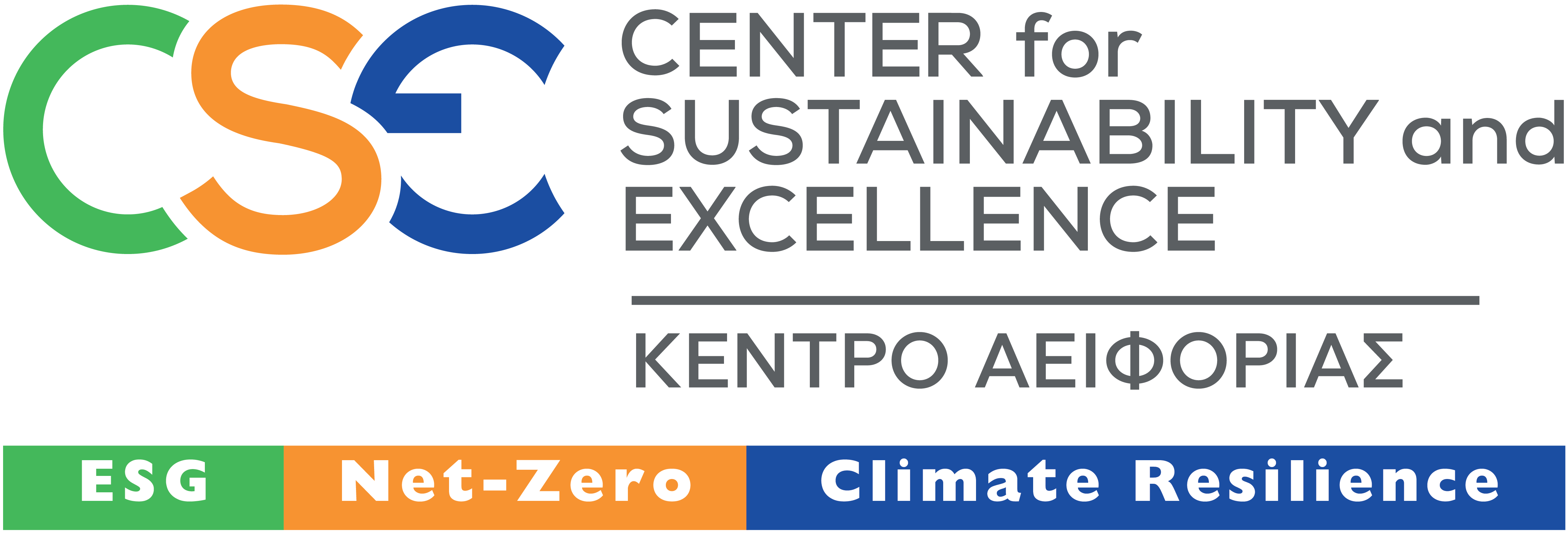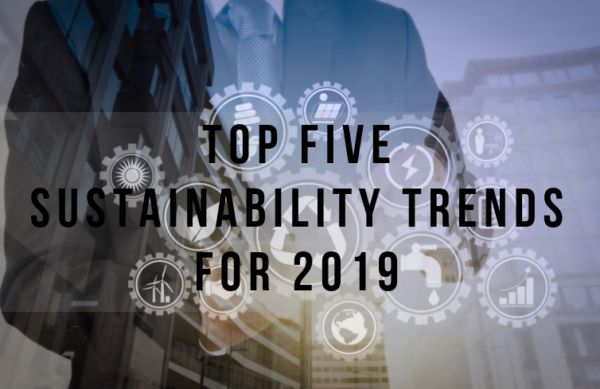By Nikos Avlonas, CSE President, and Rosalinda Sanquiche, CSE North America.
Years of research, international observation, working with corporate intrapreneurs and social entrepreneurs and leading programs around the world – we feel confident looking toward the future!
2019 will be a continuation of trends, growing in momentum. This year will also see the rise of sustainability practices in unexpected places using innovative applications of cutting-edge technologies.
1/ ARTIFICIAL INTELLIGENCE in its many manifestations will assist sustainability efforts by increasing efficiencies – a trend we’ve seen for the past couple of years. Now, entrepreneurs are bringing their technology to market as reported in CSE’s Sustainability (ESG) Reporting Trends: North America 2018. What is brand new (pun intended) is the application of AI to social marketing. AI algorithms can create emotion- and character-based interface to gain consumer buy-in and brand loyalty. Creating a persuasive digital persona will draw from positive human characteristics such as ethics, empathy, transparency and social awareness. This AI-driven marketing increasingly will be deployed in social media.
2/ SUSTAINABILITY PROFESSIONALS are leaving home. Sustainability practitioners will no longer be relegated to the Sustainability Department, under a Director of Sustainability, outsiders who tap the rest of the company once a year for metrics in pursuit of the increasingly in demand Sustainability Report. Sustainability practitioners will be found in and demanded by departments throughout an organization to strengthen organizational culture around sustainability. The legal team, Financial department, ERM (risk management), Procurement, communications, R&D, investor relations – cross-organizational departments will want a sustainability expert among their ranks, working side-by-side, answering questions, leading programs and informing policy throughout the corporate structure.
3/ TRANSPORTATION is moving toward greater efficiency using established methods of better scheduling, on-demand delivery, and computer-assisted routing. These are well established trends. What is new is the growing awareness that climate change will change transportation dynamics. The industry is experimenting with significantly low-fuel and even no-fuel options. Elon Musk has a functioning mile of Hyperloop. Adhering to the sustainability principle of transparency, his Hyperloop concept is explicitly open-sourced, encouraging creativity and entry by other players. Jeff Bezos is betting on battery-operated drones for urban delivery – limiting carbon emissions and congestion. Already social entrepreneurs are using congestion to their benefit to promote the use of electric scooters in dense urban settings.
4/ AGRICULTURE is increasingly under scrutiny for health and safety. Blockchain will track products farm-to-table. Local sourcing is growing, as is the demand for fresh products which are organic, biodynamic and/or non-GMO. To accommodate this growing market, there is concern that these farming practices, being taken over by Agribusiness, may actually be contributing more to climate change. If more acres of land must be cleared, even slash and burned, to get non-GMO yields equivalent to 1 acre of “regular” farming, research shows the carbon load is greater for the more natural farming practices. One option is to use existing farmlands, too often being subsumed into suburbia. Another option is the use of halophytes which grow on desert or denuded lands, thrive on salt water and have long root systems which sequester carbon. Increasing yields without the carbon burden of clearing lands will affect the climate change race by carbon sequester and lower dependency on fossil fuels.
5/ CARBON TAX debates will increase as Canada implements its carbon tax (revenue neutral, as are most options debated in the US). Canada’s carbon tax may be high enough to meet climate targets but won’t cover the social cost of carbon. Canada’s move is in part because it is already experiencing climate-related “coastal erosion, thawing permafrost, increases in heat waves, droughts and flooding, and related risks to critical infrastructures and food security,” as noted in its legislation. Between 2019 and 2022, gas prices will increase less than 10%, but the cost of coal will double, increasing demand for cheaper carbon-free electricity. The US Paris commitment is to reach 26 -28 % below 2005 levels by 2025. Any headway the US makes will not come via a Carbon Tax anytime soon but, at least, both state and federal options are being discussed and legislation proposed.
CSE is a leading boutique firm operating globally that specializes in maximizing business impact in Sustainability and Corporate Responsibility. CSE helps professionals advance their careers through our certified on-site, online (www.Sustainability-Academy.org) and group training services globally and supports companies and organizations grow and excel through Sustainability consulting and coaching.
Upcoming in-person Certified Sustainability (CSR) Practitioner Programs (2019 Advanced Edition) include London, March 1-2; Atlanta, February 21-22; Toronto, April 11-12; New York, June 6-7, and other dates globally.








